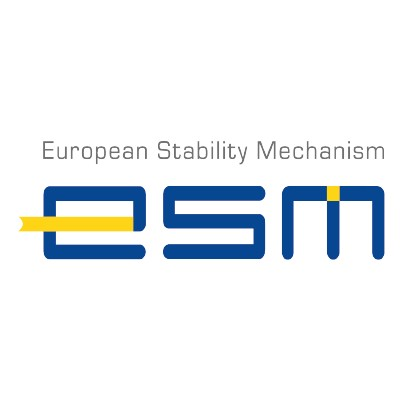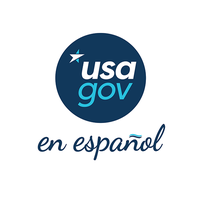The Dawn of Global AI Governance: A New Treaty for a New Era
September 6, 2024, 4:23 am

Location: Belgium, Brussels-Capital, Brussels
Employees: 1001-5000
Founded date: 1958

Location: United Kingdom, Wales, Newport, Wales
Employees: 1001-5000
Founded date: 1954

Location: United States, District of Columbia, Washington
Employees: 10001+
Founded date: 2000
On September 5, 2024, a significant milestone was reached in the realm of artificial intelligence (AI). The United Kingdom, the United States, the European Union, and several other nations signed the world’s first international treaty on AI. This landmark agreement, known as the Framework Convention on Artificial Intelligence and Human Rights, Democracy, and the Rule of Law, aims to ensure that AI development aligns with fundamental human rights and democratic values.
Imagine a ship sailing into uncharted waters. The treaty serves as a compass, guiding nations through the turbulent seas of AI innovation. It is a collective effort to harness the power of AI while safeguarding the rights and freedoms of individuals. The agreement emerged from years of discussions among 57 countries, culminating in a document that balances the need for innovation with the imperative of safety.
The treaty mandates signatories to adopt measures that protect against the risks associated with AI. These risks include biased algorithms, misinformation, and potential violations of privacy. The signatories are tasked with ensuring that AI systems respect human dignity, autonomy, and equality. They must also provide transparency about AI-driven decisions, allowing individuals to challenge those decisions if necessary.
The treaty is not just a piece of paper; it is a commitment to accountability. It requires ongoing risk assessments and the establishment of safeguards to protect human rights. If certain AI applications pose a threat, authorities can pause or ban them. This proactive approach is essential in a world where technology evolves at breakneck speed.
The signing took place during a conference of the Council of Europe Ministers of Justice in Vilnius, Lithuania. Among the initial signatories are Andorra, Georgia, Iceland, Israel, Norway, the Republic of Moldova, San Marino, and others. The treaty is separate from the EU’s AI Act, which recently came into force, highlighting the collaborative yet distinct paths nations are taking to regulate AI.
The UK’s Lord Chancellor, Shabana Mahmood, emphasized the need to shape AI rather than let it shape society. This sentiment resonates with many leaders who recognize the dual-edged sword of AI technology. It has the potential to revolutionize public services and drive economic growth, but it also poses risks that cannot be ignored.
The treaty is a response to the growing concern over AI’s impact on society. As AI systems become more integrated into daily life, the potential for misuse increases. The Bletchley Declaration, signed by 28 countries in November 2023, laid the groundwork for this treaty. It reflects a global consensus that action is needed to mitigate AI risks.
However, the treaty is not a panacea. It requires ratification by at least five signatories, including three Council of Europe member states, before it can take effect. This process could take time, but the momentum is building. More countries are expected to join, including those that participated in the negotiations.
The UK government has been proactive in its approach to AI regulation. It aims to strike a balance between fostering innovation and ensuring safety. The establishment of the UK’s first national AI Safety Institute in November 2023 is a testament to this commitment. The institute will evaluate existing AI systems and conduct foundational safety research.
In addition, the UK and US governments have agreed to collaborate on developing safety tests for advanced AI models. This partnership underscores the importance of international cooperation in addressing the challenges posed by AI. The treaty is a framework for such collaboration, encouraging nations to work together rather than in isolation.
While the treaty lays the groundwork for responsible AI governance, it also raises questions about enforcement. How will compliance be monitored? What mechanisms will be in place to address violations? These are critical issues that need to be addressed as the treaty moves forward.
The UK’s approach to AI regulation has been multifaceted. It has promised not to impose overly restrictive measures on tech companies, aiming to create an environment conducive to innovation. However, there is a clear recognition that regulation is necessary to protect citizens from potential harms.
The treaty’s provisions are designed to enhance existing laws, such as the Online Safety Act. It aims to create a cohesive framework that addresses the complexities of AI while promoting its benefits. The Conference of the Parties, composed of representatives from the signatory nations, will oversee the implementation of the treaty’s provisions.
As the world embraces AI, the treaty represents a crucial step toward responsible governance. It acknowledges the transformative potential of AI while recognizing the need for safeguards. The journey ahead will not be easy, but the commitment to uphold human rights and democratic values is a beacon of hope.
In conclusion, the signing of the first international AI treaty marks a pivotal moment in the global conversation about technology and ethics. It is a call to action for nations to collaborate, innovate, and protect the rights of individuals. As we navigate the complexities of AI, this treaty serves as a guiding star, illuminating the path toward a future where technology serves humanity, not the other way around. The world is watching, and the stakes have never been higher.
Imagine a ship sailing into uncharted waters. The treaty serves as a compass, guiding nations through the turbulent seas of AI innovation. It is a collective effort to harness the power of AI while safeguarding the rights and freedoms of individuals. The agreement emerged from years of discussions among 57 countries, culminating in a document that balances the need for innovation with the imperative of safety.
The treaty mandates signatories to adopt measures that protect against the risks associated with AI. These risks include biased algorithms, misinformation, and potential violations of privacy. The signatories are tasked with ensuring that AI systems respect human dignity, autonomy, and equality. They must also provide transparency about AI-driven decisions, allowing individuals to challenge those decisions if necessary.
The treaty is not just a piece of paper; it is a commitment to accountability. It requires ongoing risk assessments and the establishment of safeguards to protect human rights. If certain AI applications pose a threat, authorities can pause or ban them. This proactive approach is essential in a world where technology evolves at breakneck speed.
The signing took place during a conference of the Council of Europe Ministers of Justice in Vilnius, Lithuania. Among the initial signatories are Andorra, Georgia, Iceland, Israel, Norway, the Republic of Moldova, San Marino, and others. The treaty is separate from the EU’s AI Act, which recently came into force, highlighting the collaborative yet distinct paths nations are taking to regulate AI.
The UK’s Lord Chancellor, Shabana Mahmood, emphasized the need to shape AI rather than let it shape society. This sentiment resonates with many leaders who recognize the dual-edged sword of AI technology. It has the potential to revolutionize public services and drive economic growth, but it also poses risks that cannot be ignored.
The treaty is a response to the growing concern over AI’s impact on society. As AI systems become more integrated into daily life, the potential for misuse increases. The Bletchley Declaration, signed by 28 countries in November 2023, laid the groundwork for this treaty. It reflects a global consensus that action is needed to mitigate AI risks.
However, the treaty is not a panacea. It requires ratification by at least five signatories, including three Council of Europe member states, before it can take effect. This process could take time, but the momentum is building. More countries are expected to join, including those that participated in the negotiations.
The UK government has been proactive in its approach to AI regulation. It aims to strike a balance between fostering innovation and ensuring safety. The establishment of the UK’s first national AI Safety Institute in November 2023 is a testament to this commitment. The institute will evaluate existing AI systems and conduct foundational safety research.
In addition, the UK and US governments have agreed to collaborate on developing safety tests for advanced AI models. This partnership underscores the importance of international cooperation in addressing the challenges posed by AI. The treaty is a framework for such collaboration, encouraging nations to work together rather than in isolation.
While the treaty lays the groundwork for responsible AI governance, it also raises questions about enforcement. How will compliance be monitored? What mechanisms will be in place to address violations? These are critical issues that need to be addressed as the treaty moves forward.
The UK’s approach to AI regulation has been multifaceted. It has promised not to impose overly restrictive measures on tech companies, aiming to create an environment conducive to innovation. However, there is a clear recognition that regulation is necessary to protect citizens from potential harms.
The treaty’s provisions are designed to enhance existing laws, such as the Online Safety Act. It aims to create a cohesive framework that addresses the complexities of AI while promoting its benefits. The Conference of the Parties, composed of representatives from the signatory nations, will oversee the implementation of the treaty’s provisions.
As the world embraces AI, the treaty represents a crucial step toward responsible governance. It acknowledges the transformative potential of AI while recognizing the need for safeguards. The journey ahead will not be easy, but the commitment to uphold human rights and democratic values is a beacon of hope.
In conclusion, the signing of the first international AI treaty marks a pivotal moment in the global conversation about technology and ethics. It is a call to action for nations to collaborate, innovate, and protect the rights of individuals. As we navigate the complexities of AI, this treaty serves as a guiding star, illuminating the path toward a future where technology serves humanity, not the other way around. The world is watching, and the stakes have never been higher.